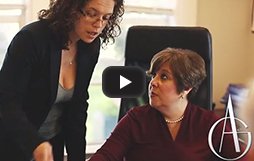The Collaborative Law Process Act
Exciting news! Florida has adopted a law codifying the Collaborative approach to family law disputes. Collaborative divorce is a relatively new phenomenon in most states in the U.S., and as such, until now it was largely unregulated, although it has been practiced successfully around the world for some time. On March 24, 2016, Florida became the 14th State in the United States to enact a Collaborative Law Statute, with Governor Scott’s signature on the Collaborative Law Process Act (CLPA). This law is an important step for the State of Florida to tell Judges, lawyers and divorcing spouses that Florida supports dispute resolution by the parties themselves without a third party, “the Judge” telling them what the correct outcome is to their divorce.
The Act
The new law promotes settlement of custody determinations, paternity, family relocation, spousal support issues, child support, modifications, terminations of alimony and many other family disputes, via the collaborative process, rather than a mandatory court proceeding. The new Statute codifies the now-traditional collaborative law Team approach consisting of the parties, their lawyers, as well as a financial and psychological professional in place to assist the Team to come to a resolution of the parties’ disputes in a goal-oriented manner.
Moving Forward
In a Collaborative case, the clients and their lawyers agree that they will use the parties’ resources to come up with an out-of-court solution to the divorce with the assistance of the financial and mental health neutral that the team selects to assist them. The participants list their goals at the outset of the process, and the Team agrees to meet at regular intervals to work towards their goals without going to court or using traditional discovery, such as depositions. The parties sign agreements as to their responsibility in the process to be truthful and to work toward the parties’ desired outcomes in a civil manner. While not every case resolves in this process, those who commit to the process usually do settle. Many who participate report a sense of relief at the conclusion of their case, rather than the empty, angry feelings that follow a court proceeding.
The new Statute creates a privilege, so that participants in the process know that their negotiations and communications will not be used against them in Court if they do not reach an agreement. Most Collaborative cases settle because the process is designed by the Professional Team to overcome obstacles to resolution in a non-confrontational way, taking into account the values of the parties and utilizing the vast knowledge of the Lawyers, the Financial and Mental Health Professional who work together to create solutions, rather than positions for or against a certain party. The lawyer continues to represent his or her client’s interests, but without excluding consideration of the other’s party’s desires in the process.
A bonus for many people, is that the parties may choose to keep their finances private as part of this process, so that neighbors, employers, children and the general public are unable to access personal information in Court records that are not protected similarly in traditional litigated divorces . Whether or not you have a high income or net worth, most people prefer not to share their finances- income, assets, debts with the world- at- large. This can be done in a Collaborative case with full disclosure of assets to the Team but which may not be filed with the Court.
Ask a Collaborative Lawyer
While having a law that codifies the collaborative process in place is a good start, it still will likely not answer every question you may have about Collaborative law and Collaborative divorce. An experienced Orlando collaborative law lawyer can help. The firm of Goodblatt · Leo is well versed in the complexities of the comparative law process, and if you have questions, we will do our best to answer them. Amy Goodblatt has successfully represented parties in a number of Collaborative divorces with complex issues that have resolved without costly and vexatious litigation. Contact us via phone at 407-228-7007 or use our web form to set up an appointment.






